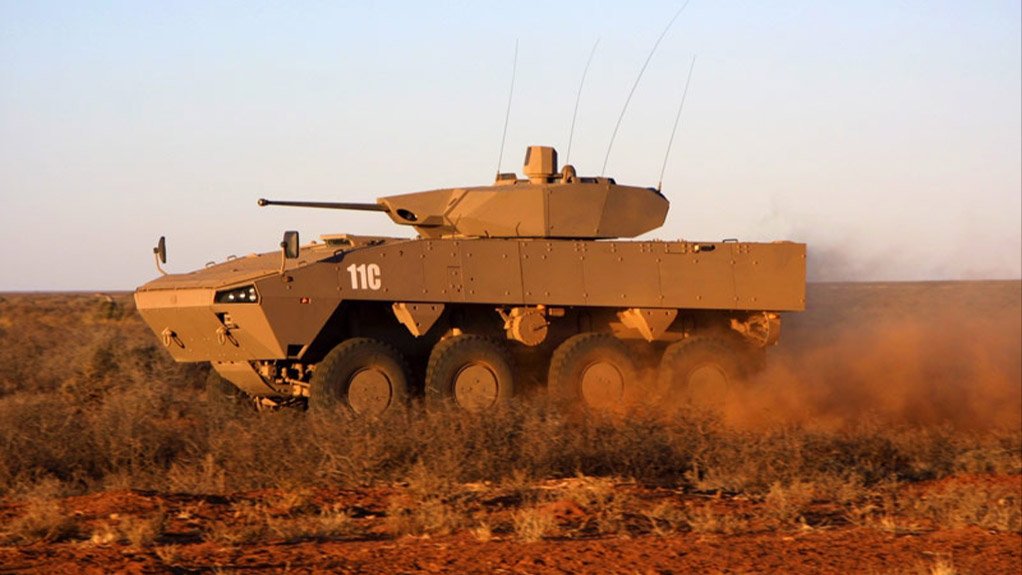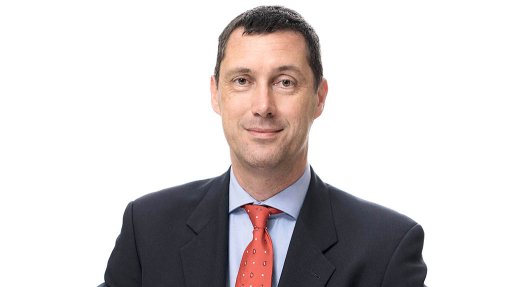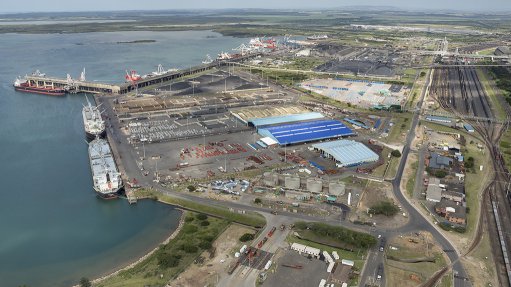Denel announces fresh turnaround strategy
State-owned defence company Denel has announced it will institutionalise and implement a new turnaround plan to effect a self-sustaining business.
The plan is particularly focused on streamlining the company, growing its order pipeline and accessing new revenue streams.
Chief restructuring officer Riaz Salojee said during a media briefing on August 11 that the plan had the support of the Department of Public Enterprises (DPE) and the Denel board, and would be strengthened through a formalised memorandum of cooperation with the Department of Defence (Dof) and its arms procurement agency the Armaments Corporation of South Africa, to ensure alignment on sovereign and strategic capabilities.
Denel was a stable State-owned enterprise between 2010 and 2015, but started showing signs of financial distress in 2016/17, partly owing to State capture and emerging weaknesses in management, leadership, project execution and contract management.
The company’s revenue had fallen from a peak of R8.2-billion in 2015/16 to under R2-billion in 2021/22.
It also has not helped that the South African defence budget spend in relation to gross domestic product (GDP) has been declining for a number of years down to 0.7%. This compares with the world’s average spend on defence as a percentage of GDP, which sits at about 2%.
Salojee believes Denel can start being self-sustaining with an order book of R12-billion and reach a complete turnaround and solid revenue generation with an order book of R30-billion.
The current Denel business model, however, remains materially lossmaking, but some improvements can be made on the execution of current orders, among other efforts.
The turnaround plan is premised on six elements – reducing costs and improving performance; engaging staff who are performance-oriented; increasing the customer base; implementing an effective supply chain, which relates to procurement processes and contract management, as well as optimal stock levels; optimising planning and production; and establishing key partnerships and joint ventures.
Responding to whether Denel will be asking for turnaround capital from the fiscus, interim chairperson Gloria Serobe said it would first seek to raise funds by selling noncore assets and reducing its cost base wherever possible.
However, Denel has submitted a recapitalisation application to the National Treasury through the DPE, to address the company’s legacy debt and introduce liquidity.
When asked whether retrenchments were in store, Serobe affirmed that Denel would follow the necessary consultative and legal processes before embarking on such action.
She added that the turnaround plan was not meant to negatively impact employees.
Salojee said the strategic intent of Denel was to reduce dependence on the fiscus. Rather, a rationalised Denel would focus on its proven capabilities in the fields of guided weapons, land defence systems, aircraft engineering and maintenance and the delivery of complex integrated systems for the security and cyber-environments.
However, the problem at the moment was the fixed cost of the business being far in excess of revenue and executable business.
The company will now focus on achieving higher levels of efficiency by adopting a smaller geographic footprint and streamlining policies and processes, including on engineering, manufacturing and the support environment.
“We intend to grow long-term strategic partnerships with the local defence and technology sectors, and entrench our position once again in the local and international markets,” Salojee said.
He noted that there remained a significant interest in Denel’s battle-proven intellectual property, adding that the rapidly changing global defence environment would create opportunities to market the company’s products.
The “reset” of the company will be done in three stages: stabilisation, which is based on current revenues, obligations and reduced infrastructure; followed by sustainability, which will be based on exploitation of existing business opportunities and improvements of business processes and efficiencies; and thereafter growth, based on the capturing of the current and future order pipeline.
SALARY MATTERS
Meanwhile, Denel had fully paid all outstanding salaries owed to employees, Serobe assured stakeholders during the media briefing.
On other outstanding matters, such as Pay as you Earn and employee pension funds, Denel has put payment plans in place, she said.
The cash used for paying outstanding salaries was derived from a funding initiative to unlock excess funds in Denel’s Medical Benefit Trust, that was established in 2002.
The trust is the vehicle through which Denel has been meeting its contractual medical aid obligations towards employees who joined the company before 2002.
Through the years, the assets of the trust exceeded the actuarial valued liabilities by a significant amount.
Denel then developed a strategy to unlock the excess assets while ensuring that the members’ medical benefits were not affected and the pensioners’ interests were dealt with adequately.
This intervention is the first step towards starting a sustainable restructuring plan for Denel, Serobe said.
In February this year, Denel owed about R650-million in outstanding salaries to employees and R900-million in outstanding payments to suppliers.
Trade union Solidarity was about to auction off seized Denel assets to pay at least R90-million of debt owed to its members specifically, in terms of a court order; however, these auctions have since been suspended.
Some employees at Denel had to make do with only partial and sometimes no salary payments for more than two years.
Fellow trade union Uasa also had its share of trouble collecting outstanding salary payments from Denel and has been challenging the company in the Labour Court.
Denel received recapitalisations of R1.8-billion in 2019/20 and again in 2020/21 to the tune of R576-million. Government also provided an extended R5.9-billion guaranteed debt facility to the company in 2020/21, and an additional R2.9-billion recently to cover debt obligations.
Article Enquiry
Email Article
Save Article
Feedback
To advertise email advertising@creamermedia.co.za or click here
Press Office
Announcements
What's On
Subscribe to improve your user experience...
Option 1 (equivalent of R125 a month):
Receive a weekly copy of Creamer Media's Engineering News & Mining Weekly magazine
(print copy for those in South Africa and e-magazine for those outside of South Africa)
Receive daily email newsletters
Access to full search results
Access archive of magazine back copies
Access to Projects in Progress
Access to ONE Research Report of your choice in PDF format
Option 2 (equivalent of R375 a month):
All benefits from Option 1
PLUS
Access to Creamer Media's Research Channel Africa for ALL Research Reports, in PDF format, on various industrial and mining sectors
including Electricity; Water; Energy Transition; Hydrogen; Roads, Rail and Ports; Coal; Gold; Platinum; Battery Metals; etc.
Already a subscriber?
Forgotten your password?
Receive weekly copy of Creamer Media's Engineering News & Mining Weekly magazine (print copy for those in South Africa and e-magazine for those outside of South Africa)
➕
Recieve daily email newsletters
➕
Access to full search results
➕
Access archive of magazine back copies
➕
Access to Projects in Progress
➕
Access to ONE Research Report of your choice in PDF format
RESEARCH CHANNEL AFRICA
R4500 (equivalent of R375 a month)
SUBSCRIBEAll benefits from Option 1
➕
Access to Creamer Media's Research Channel Africa for ALL Research Reports on various industrial and mining sectors, in PDF format, including on:
Electricity
➕
Water
➕
Energy Transition
➕
Hydrogen
➕
Roads, Rail and Ports
➕
Coal
➕
Gold
➕
Platinum
➕
Battery Metals
➕
etc.
Receive all benefits from Option 1 or Option 2 delivered to numerous people at your company
➕
Multiple User names and Passwords for simultaneous log-ins
➕
Intranet integration access to all in your organisation





















